Tanzi Lab
Contact Information
Tanzi Lab
MGH Department of Neurology
Genetics and Aging Research Unit
Bldg. 114, 16th Street
Charlestown,
MA
02129
Email: rtanzi@mgh.harvard.edu
Rudy Tanzi, PhD
Joseph. P. and Rose F. Kennedy Professor of Neurology
Harvard Medical School
Director, Genetics and Aging Research Unit
Director, McCance Center for Brain Health
Co-Director, MassGeneral Institute for Neurodegenerative Disease
Explore This Lab
Research Overview
Dr. Tanzi has been investigating the molecular and genetic basis of neurological disease since 1980 when he participated in the study that was the first to use human genetic markers (now called single nucleotide polymorphisms, SNP’s) to localize a disease gene - Huntington's disease (HD) gene. This was the first time a disease gene with entirely unknown etiology was localized based solely on genetic linkage analysis. Since 1982, he has been investigating the genetic and molecular basis of Alzheimer's disease (AD). Between 1987 and 1995, Dr. Tanzi discovered (along with others) the first three AD genes: the three that cause early-onset familial AD - amyloid β-protein (A4) precursor (APP), and the presenilin 1 and 2 genes (PSEN1 and PSEN2). In 1993, he discovered the gene responsible for Wilson's disease. Over the past three decades, he has also collaborated on studies identifying several other disease genes, including the familial amyotrophic lateral sclerosis (ALS) gene (SOD1) and genes predisposing to autism. Since 2004, Dr. Tanzi has served as founder and director of the Alzheimer’s Genome Project™ supported by the Cure Alzheimer’s Fund. As part of this project, in 2008, he carried out the first family-based AD genome-wide association study (GWAS) and identified a set of novel AD genes, including ADAM10, for which he validated the pathogenicity of two rare missense mutations in late-onset AD families, ATXN1, and CD33, the first microglial innate immune gene associated with AD, now one among dozens of others. Dr. Tanzi’s laboratory also first showed that CD33 regulates microglial activation and determined the mechanism of action of CD33 and TREM2 in neuroinflammation. Most recently, Dr. Tanzi’s laboratory has been generating and analyzing large datasets of whole exome and whole genome sequencing data from hundreds of AD families and hundreds of thousands of AD patients to identify novel functional gene variants and mutations influencing risk for AD.
Regarding drug discovery to treat and prevent AD, since 2000 Dr. Tanzi has been developing gamma-secretase modulators (GSM) aimed at safely curbing beta-amyloid production as a treatment and primary/secondary prevention for AD. His clinical candidate, GSM, is slated for phase 1 trials in 2024. Dr. Tanzi’s laboratory has also created the first three-dimensional (3D) human brain cell culture and brain organoid model of AD. These models were the first to recapitulate both amyloid plaque and tangle pathology using human stem cell-derived neurons grown in a 3D cell culture system (dubbed “Alzheimer’s-in-a-Dish™”). The Tanzi Lab has used this system to help validate the amyloid hypothesis of AD by showing for the first time that beta-amyloid directly induces tangle formation from endogenous tau protein. In another 3D multicellular microfluidics model of AD, Dr. Tanzi’s laboratory elucidated the role of peripheral T cells and other immune cells in driving AD pathology. Dr. Tanzi and collaborators have also used 3D models of AD to identify and validate over 200 approved drugs and known natural products that can be repurposed for treating and preventing AD. Using this same strategy, Dr. Tanzi recently helped the company Amylyx to develop and launch the newest ALS drug, Relyvrio™, consisting of two repurposed drugs. Dr. Tanzi and his laboratory also first discovered a novel role for the amyloid beta protein as an antimicrobial peptide that protects the brain against infection, and based on this, they proposed the antimicrobial protection hypothesis of AD. In this hypothesis, amyloid plaques are nucleated (seeded) by microbes, e.g., herpes and CMV virus, and serve to trap pathogenic microbes apart of the brain’s innate immune system. The Tanzi’s Lab is now searching for the exact microbes (bacterial, viral, fungal) that populate the AD brain and trigger amyloidosis.
Lab Members
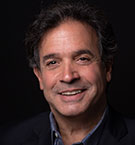 Rudy Tanzi, PhD
Rudy Tanzi, PhD
Principal Investigator
Dr. Tanzi is the Director of the Genetics and Aging Research Unit, Director of the Henry and Allison McCance Center for Brain Health, and Co-Director of the Mass General Institute for Neurodegenerative Disease at Massachusetts General Hospital. He also serves as the Joseph P. and Rose F. Kennedy Professor of Neurology at Harvard Medical School. Dr. Tanzi co-discovered the first Alzheimer’s disease (AD) gene, the amyloid precursor protein (APP) gene, and the two other early-onset familial AD genes, presenilin 1 and presenilin 2. As leader of the Cure Alzheimer’s Fund Alzheimer’s Genome Project, Dr. Tanzi identified several other AD genes, including CD33, the first AD gene shown to regulate neuroinflammation in AD. He also discovered the Wilson’s disease gene and contributed to the identification of several other neurological disease genes, including the first familial ALS gene, SOD1.
Dr. Tanzi’s team was the first to use human stem cells to create three-dimensional mini human brain organoids and 3D neural-glial culture models of AD”. These models were the first to recapitulate all three key AD pathological hallmarks and have made drug screening exponentially faster and cheaper. He and his team have successfully used these organoids to screen for approved drugs and natural products that can be repurposed to treat AD brain pathology. Combinations of these drugs are now being tested in AD clinical trials. Dr. Tanzi has helped to develop several novel therapies for AD, including gamma-secretase modulators targeting amyloid pathology, for which a phase 1 clinical trial is being prepared. Dr. Tanzi has helped establish numerous biotech companies, including Amylyx, which developed the newly approved ALS drug, Relyvrio™. Dr. Tanzi also recently discovered that beta-amyloid plays a functional role in the brain as a host-defense peptide, leading to the “antimicrobial protection hypothesis” of AD.
Dr. Tanzi serves as Chair of the Cure Alzheimer’s Fund Research Leadership Group and on numerous scientific advisory and editorial boards, He has published nearly 700 research papers (>155,000 citations) and is one of the top 50 most cited neuroscientists in the world. He is a member of the National Academy of Medicine and has received the highest awards in his field, including the Metropolitan Life Foundation Award, Potamkin Prize, Ronald Reagan Award, Oneness in Humanity Award, Silver Innovator Award, the Smithsonian American Ingenuity Award, the Brain Research Foundation Award, and the Kary Mullis Award for Medical Research. He was named to TIME magazine’s list of TIME100 Most Influential People in the World. Dr. Tanzi is also a New York Times bestselling author who has co-authored the books Decoding Darkness and bestsellers Super Brain, Super Genes, and The Healing Self, for which he has hosted several television shows on PBS.
View Dr. Tanzi's Harvard Catalyst profile
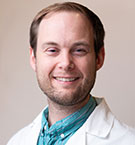 William Eimer, PhD
William Eimer, PhD
Instructor
In Alzheimer’s disease, amyloid beta (Aβ) and tau have long been perceived as destructive elements essential to neurodegeneration in AD, but little thought has been given to their natural functions. Our team discovered that both play roles in the innate immune system, acting as antimicrobial peptides (AMPs). AMPs exist throughout the body performing many functions including microbe capture and destruction, opsonization, chemotaxis, and immune response modulation. Existing as an important link between the Amyloid Cascade hypothesis and the Pathogen hypothesis of AD, our Antimicrobial Protection hypothesis views Aβ and tau as the first line of defense in the brain, stimulated by actual or perceived microbial insults. Disruptions from persistent activation, failed clearance, or irregular modulation result in AD pathology. Our team continues to elucidate essential pathways and antimicrobial functions of Aβ and tau to better understand AD etiology and uncover novel immune pathways that may be used for more effective treatments.
 Deepak Kumar Vijaya Kumar, PhD
Deepak Kumar Vijaya Kumar, PhD
Instructor
Dr. Deepak Vijaya Kumar’s research is focused on characterization of Aβ protein of Alzheimer’s disease (AD) as an antimicrobial peptide (AMP). Dr. Kumar is currently an instructor at Mass General and Harvard Medical School in Dr. Rudolph Tanzi’s laboratory in the Genetics and Aging Research Unit. Dr. Kumar’s expertise comprises a combination of academic and industrial skill sets including microbiology, neuroscience, infection, and immunity that he has aptly applied to his current research. His other projects include characterization of the human amylin peptide (another amyloid peptide), investigation of the in vitro and in vivo endotoxin-neutralization properties of Aβ, and screening of peptide-antibiotic conjugate molecules for their blood-brain barrier crossing ability. Dr. Kumar’s paper published in Science Translational Medicine in 2016 was considered by many experts in the field a breakthrough and has impressed upon the field of AD the role of infection in early AD pathology. He has been working on the gut-brain link in AD progression in relation to the gut microbiome and their secondary metabolites and how they might impact the early AD pathology.
 Chih-Chung "Jerry" Lin, PhD
Chih-Chung "Jerry" Lin, PhD
Instructor
As an instructor at Massachusetts General Hospital and Harvard Medical School, Dr. Chih-Chung 'Jerry' Lin's research is focused on the roles of immune cells in the animal models of Alzheimer's disease (AD). Dr. Lin was trained as an immunologist, and his current research is dedicated to investigating the influence of peripheral immune cells (both innate and adaptive immune systems) on the pathogenesis of AD. He discovered that the depletion of mast cells, a type of innate immune cell, yields remarkable outcomes. AD mice without mast cells showed restored cognitive function, increased disease-associated microglia gene expression, and reduced markers indicative of reactive astrocytes. This endeavor seeks to uncover the immunological mechanisms that underlie the progression of Alzheimer's, with the ultimate goal of contributing to the development of innovative therapeutic approaches that could mitigate the disease.
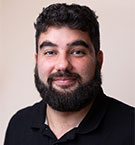 Felipe Schiffino, PhD
Felipe Schiffino, PhD
Instructor
I am an Instructor of Neurology in Dr. Rudolph Tanzi’s lab studying therapeutic mechanism of evoked gamma oscillations in Alzheimer’s disease (AD) model mice. We use techniques including optogenetics, in vivo electrophysiology, flow cytometry and transcriptomics to investigate the impact of evoked gamma treatment on functions mediated by glial cells and neurons including microglial phagocytosis, glymphatic clearance during sleep, and signal conduction between brain regions. Our ultimate goal is to inform translational work by revealing novel targets for intervention.
 Nanda Kumar Navalpur Shanmugam, PhD
Nanda Kumar Navalpur Shanmugam, PhD
Instructor
Dr. Shanmugam’s research focuses on understanding the molecular mechanisms of the gut microbiota-host relationship, particularly in brain health. He investigates how gut microbiota influences immune balance, gut health, and bidirectional communication with the brain, with implications for aging and Alzheimer’s disease (AD). While studying the gut-brain axis in AD, Dr. Shanmugam explores the benefits of prebiotics and probiotics on gut microbiota and brain function. Additionally, he is deeply involved in investigating the complex interplay of the gut-brain axis in AD. This involves examining the correlation between dietary changes, gut inflammation, and microbiome alterations in AD progression. He also examines whether chronic gut inflammation exacerbates brain amyloid deposition in AD mouse models. Furthermore, Dr. Shanmugam identifies potential triggers of beta-amyloid pathology and neuroinflammation using advanced sequencing techniques on brain, blood, and saliva samples. Through high-throughput screening, his work aims to uncover microbial signatures contributing to AD pathogenesis, addressing key questions in the field.
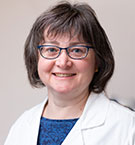 Luisa Quinti, PhD
Luisa Quinti, PhD
Instructor
Dr. Quinti received her undergraduate degree in Italy and then pursued a Ph.D. in Chemistry in the UK. She moved to Massachusetts General Hospital as a post-doctoral fellow and is currently an Instructor in Dr. Tanzi’s Genetics and Aging Research unit. She has been involved in the development of therapeutics for neurodegenerative diseases since 2005. Dr. Quinti is passionate about generating reliable models of Alzheimer’s disease that can fast-track the search for a cure and identify novel drug candidates and targets. To that effect, together with Dr. Doo Yeon Kim, she is translating 3D AD models into robust drug-screening platforms to find potential AD drugs that can be readily evaluated for human trials. She also closely collaborates with Dr. Ana Griciuc to investigate natural products and other compounds that reduce neuroinflammation.
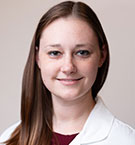 Moriah Hovde, PhD
Moriah Hovde, PhD
Research Fellow
Dr. Hovde is interested in how cholesterol metabolism and protein homeostasis contribute to neurodegenerative diseases with a large focus on Alzheimer’s disease. The major focus of her research with the Tanzi lab has been understanding how the regulation of cellular cholesterol impacts amyloid pathology in Alzheimer’s disease by influencing microglia-mediated uptake of Aβ. Other areas of interest include how post-translational modifications, specifically phosphorylation and palmitoylation, impact protein regulation and lead to various pathologies.
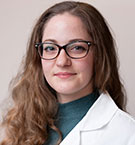 Anna Maaser-Hecker
Anna Maaser-Hecker
Graduate Research Assistant
Anna joined Dr. Tanzi’s laboratory in January 2020, bringing together her computational expertise and wet-lab skills. Her primary focus is on uncovering the role of genetic variations linked to Alzheimer’s disease. Utilizing CRISPR Cas technology, Anna translates rare genetic variants, particularly those involving microglia, into iPSC-derived cell models and studies their impact on microglial function in health and disease contexts. Her doctoral research at the University of Bonn in Germany concentrated on complex psychiatric disorders, particularly the role of rare genetic variants found in families with multiple affected members in the etiology of these conditions. Outside of the lab, Anna enjoys practicing yoga, hiking, and spending quality time with her family.
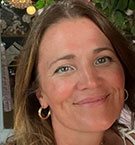 Kristina Mullin
Kristina Mullin
Senior Research Technologist
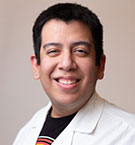 Alex Rodriguez
Alex Rodriguez
Research Technologist
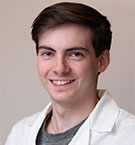 Michael Defao
Michael Defao
Research Technician
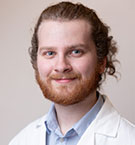 Evan Gavrilles
Evan Gavrilles
Research Technician
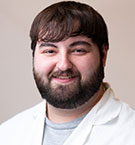 Matthew Hansen
Matthew Hansen
Research Technician
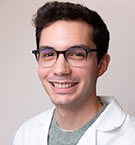 Nader Jaafar
Nader Jaafar
Research Technician
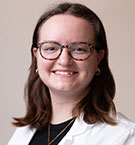 Grace Jachimiec
Grace Jachimiec
Research Technician
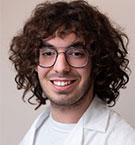 Alex Moir
Alex Moir
Research Technician
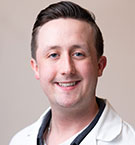 Trey Moore
Trey Moore
Research Technician
 Kianna Rivera-Barrett
Kianna Rivera-Barrett
Research Technician
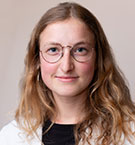 Hanna Preuss
Hanna Preuss
Visiting Graduate Student
 Sophie Tiefenbacher
Sophie Tiefenbacher
Visiting Graduate Student
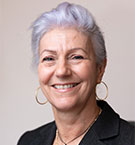 Susanna Cortese
Susanna Cortese
Admin
Donna Romano
Laboratory Manager
 Elene Ketema
Elene Ketema
Research Laboratory Assistant
Recent Publications
- Jorfi M, Park J, Hall CK, Lin CJ, Chen M, von Maydell D, Kruskop JM, Kang B, Choi Y, Prokopenko D, Irimia D, Kim DY, Tanzi RE. Infiltrating CD8+ T cells exacerbate Alzheimer's disease pathology in a 3D human neuroimmune axis model. Nat Neurosci. 2023 Sep;26(9):1489-1504. doi: 10.1038/s41593-023-01415-3. Epub 2023 Aug 24. PMID: 37620442.
- Kim E, Kim H, Jedrychowski MP, Bakiasi G, Park J, Kruskop J, Choi Y, Kwak SS, Quinti L, Kim DY, Wrann CD, Spiegelman BM, Tanzi RE, Choi SH. Irisin reduces amyloid-β by inducing the release of neprilysin from astrocytes following downregulation of ERK-STAT3 signaling. Neuron. 2023 Nov 15;111(22):3619-3633.e8. doi: 10.1016/j.neuron.2023.08.012. Epub 2023 Sep 8. PMID: 37689059; PMCID: PMC10840702.
- Lin CJ, Herisson F, Le H, Jaafar N, Chetal K, Oram MK, Flynn KL, Gavrilles EP, Sadreyev RI, Schiffino FL, Tanzi RE. Mast cell deficiency improves cognition and enhances disease-associated microglia in 5XFAD mice. Cell Rep. 2023 Sep 26;42(9):113141. doi: 10.1016/j.celrep.2023.113141. Epub 2023 Sep 19. PMID: 37713312; PMCID: PMC10634538.
- Prokopenko D, Lee S, Hecker J, Mullin K, Morgan S, Katsumata Y; Alzheimer’s Disease Neuroimaging Initiative (ADNI); Weiner MW, Fardo DW, Laird N, Bertram L, Hide W, Lange C, Tanzi RE. Region-based analysis of rare genomic variants in whole-genome sequencing datasets reveal two novel Alzheimer's disease-associated genes: DTNB and DLG2. Mol Psychiatry. 2022 Apr;27(4):1963-1969. doi: 10.1038/s41380-022-01475-0. Epub 2022 Mar 4. PMID: 35246634; PMCID: PMC9126808.
- Rynearson KD, Ponnusamy M, Prikhodko O, Xie Y, Zhang C, Nguyen P, Hug B, Sawa M, Becker A, Spencer B, Florio J, Mante M, Salehi B, Arias C, Galasko D, Head BP, Johnson G, Lin JH, Duddy SK, Rissman RA, Mobley WC, Thinakaran G, Tanzi RE, Wagner SL. Preclinical validation of a potent γ-secretase modulator for Alzheimer's disease prevention. J Exp Med. 2021 Apr 5;218(4):e20202560. doi: 10.1084/jem.20202560. PMID: 33651103; PMCID: PMC7931646.
- Prokopenko D, Morgan SL, Mullin K, Hofmann O, Chapman B, Kirchner R; Alzheimer's Disease Neuroimaging Initiative (ADNI); Amberkar S, Wohlers I, Lange C, Hide W, Bertram L, Tanzi RE. Whole-genome sequencing reveals new Alzheimer's disease-associated rare variants in loci related to synaptic function and neuronal development. Alzheimers Dement. 2021 Sep;17(9):1509-1527. doi: 10.1002/alz.12319. Epub 2021 Apr 2. PMID: 33797837; PMCID: PMC8519060.
- Paganoni S, Macklin EA, Hendrix S, Berry JD, Elliott MA, Maiser S, Karam C, Caress JB, Owegi MA, Quick A, Wymer J, Goutman SA, Heitzman D, Heiman-Patterson T, Jackson CE, Quinn C, Rothstein JD, Kasarskis EJ, Katz J, Jenkins L, Ladha S, Miller TM, Scelsa SN, Vu TH, Fournier CN, Glass JD, Johnson KM, Swenson A, Goyal NA, Pattee GL, Andres PL, Babu S, Chase M, Dagostino D, Dickson SP, Ellison N, Hall M, Hendrix K, Kittle G, McGovern M, Ostrow J, Pothier L, Randall R, Shefner JM, Sherman AV, Tustison E, Vigneswaran P, Walker J, Yu H, Chan J, Wittes J, Cohen J, Klee J, Leslie K, Tanzi RE, Gilbert W, Yeramian PD, Schoenfeld D, Cudkowicz ME. Trial of Sodium Phenylbutyrate-Taurursodiol for Amyotrophic Lateral Sclerosis. N Engl J Med. 2020 Sep 3;383(10):919-930. doi: 10.1056/NEJMoa1916945. PMID: 32877582; PMCID: PMC9134321.
- Suh J, Romano DM, Nitschke L, Herrick SP, DiMarzio BA, Dzhala V, Bae JS, Oram MK, Zheng Y, Hooli B, Mullin K, Gennarino VA, Wasco W, Schmahmann JD, Albers MW, Zoghbi HY, Tanzi RE. Loss of Ataxin-1 Potentiates Alzheimer's Pathogenesis by Elevating Cerebral BACE1 Transcription. Cell. 2019 Aug 22;178(5):1159-1175.e17. doi: 10.1016/j.cell.2019.07.043. PMID: 31442405; PMCID: PMC6726125.
- Griciuc A, Patel S, Federico AN, Choi SH, Innes BJ, Oram MK, Cereghetti G, McGinty D, Anselmo A, Sadreyev RI, Hickman SE, El Khoury J, Colonna M, Tanzi RE. TREM2 Acts Downstream of CD33 in Modulating Microglial Pathology in Alzheimer's Disease. Neuron. 2019 Sep 4;103(5):820-835.e7. doi: 10.1016/j.neuron.2019.06.010. Epub 2019 Jul 10. PMID: 31301936; PMCID: PMC6728215.
- Choi SH, Bylykbashi E, Chatila ZK, Lee SW, Pulli B, Clemenson GD, Kim E, Rompala A, Oram MK, Asselin C, Aronson J, Zhang C, Miller SJ, Lesinski A, Chen JW, Kim DY, van Praag H, Spiegelman BM, Gage FH, Tanzi RE. Combined adult neurogenesis and BDNF mimic exercise effects on cognition in an Alzheimer's mouse model. Science. 2018 Sep 7;361(6406):eaan8821. doi: 10.1126/science.aan8821. PMID: 30190379; PMCID: PMC6149542.
Featured News
Brainstorm on SHIELD with Meryl Comer Pt. 1 Feb 2024 – UsAgainstAlzheimer’s
Brainstorm on SHIELD with Meryl Comer Pt. 2 Feb 2024 – UsAgainstAlzheimer’s
Alzheimer's disease: Tackling neuroinflammation for early intervention and enhanced treatments – News Medical
Foods That Improve Memory – Mass General Brigham News
AI that reads brain scans shows promise for finding Alzheimer’s genes – Nature
Getting less slow-wave sleep as you age may increase your risk of dementia, study finds – CNN
Can We Prevent Alzheimer's? Scientists Say New Tests and Treatments are "a Game Changer" – Newsweek
Society of the Four Arts – Cure Alzheimer's Fund
Duke/UNC New Approaches for Understanding the Potential Role of Microbes in AD – Duke Aging Center
BWH Grand Rounds – Brigham and Women's Hospital
Alumni
The Tanzi Lab has many talented alums from 1991 to present day.
View Tanzi Lab Alumni
| Years | Name | Position |
| 1991-1993 | Wilma Wasco, PhD | Associate Professor, Harvard/MGH |
| 1991-1994 | Sandra Gaston, PhD | Assistant Professor, MIT |
| 1992-1994 | Ashley Bush, MD, PhD | Professor, University of Melbourne |
| 1993-1995 | Dora Kovacs, PhD | Associate Professor, Harvard/MGH |
| 1994-2000 | Tae-Wan Kim, PhD | Associate Professor, Columbia University |
| 1994-1996 | Suzanne Guenette, PhD | Ottawa (Non-scientific position) |
| 1994-2019 | Robert Moir, PhD | Assistant Professor, Harvard/MGH (Deceased) |
| 1996-1998 | Giuseppina Tesco, MD | Associate Professor, Tufts University |
| 1998-2002 | Aleister Saunders, PhD | Vice-Chancellor, Drexel University |
| 1999-2002 | Lars Bertram, MD | Professor, University of Luebeck |
| 2000-2002 | Joy Goto, PhD | Assistant Professor, City of Hope |
| 2000-2010 | Zhongcong Xie, MD | Professor, Harvard/MGH |
| 2002-2005 | Young Ho Koh, PhD | Government Researcher, South Korea |
| 2003-2013 | Minji Kim, PhD | Scientific Consultant, McKinsey |
| 2003-2013 | Mikko Hiltunen, PhD | Professor, University of Kuopio |
| 2003-2022 | Airong Li, PhD | Assistant Professor, Harvard/MGH (Deceased) |
| 2003-2008 | Alice Lu | McKinsey Consultant |
| 2004-2012 | Stephanie Soscia | Moderna |
| 2006-2016 | Basavaraj Hooli, PhD | Geneticist, Lilly |
| 2007-2012 | Can Zhang, M.D., Ph.D. | Assoc. Prof., Harvard/MGH |
| 2008-2013 | Jaehong Suh, Ph.D. | Asst. Prof., Harvard/MGH |
| 2010-2015 | Se Hoon Choi, Ph.D. | Asst. Prof., Harvard/MGH |
| 2010-2015 | Ana Griciuc, Ph.D. | Asst. Prof., Harvard/MGH |
| 2011-2013 | Antonio Parrado, PhD | Research Scientist, Janssen Pharm |
| 2012-2017 | Vivek Gautam, PhD | Biologist, Novartis |
| 2012-2017 | Raja Bhattacharyya, Ph.D. | Asst. Prof., Harvard/MGH |
| 2015-2016 | Subrata Ghosh, PhD | India Tech. Research Institute |
| 2016-2020 | Junseok Bae, PhD | Postdoctoral Fellow, South Korea |
| 2017-2023 | Meng Chen, PhD | Senior Scientist, South Korea |
| 2017-2023 | Hoang Li, PhD | Biotech Start-Up |
| 2018-2021 | Shaun Patel, PhD | CEO, React Neuro |
| 2018-2022 | Fanny Herisson, MD/PhD | Vertex Pharma |
| 2018-2023 | Dmitry Prokopenko, Ph.D. | Asst. Prof., Harvard/MGH |
| 2018-2023 | Mehdi Jorfi, Ph.D. | Asst. Prof., Harvard/MGH |
| 2019-2023 | Jenny Linnoila, MD | Assoc. Prof., U. Pittsburgh |
Research at Mass General Neuroscience
Mass General Neuroscience brings together the nationally ranked Departments of Neurology, Neurosurgery, Psychiatry, and the Martinos Center.
Genetics and Aging Research Unit Affiliation
McCance Center for Brain Health
Mass General Institute for Neurodegenerative Disease (MIND)
Department of Neurology
Harvard Medical School
Support Our Work
Your donations help elicit the greatest potential from the Genetics and Aging Research Unit’s superb team and fuel the research that will result in better treatment and, ultimately, cure neurological disorders.
